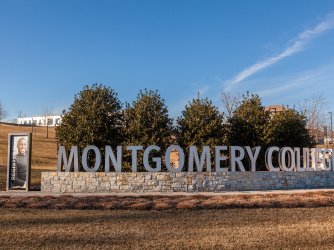Table of Contents
Wronging student rights

This article appeared in The Boston Globe.
As summer ends and college students return to campus, a number of dreadful court decisions may cause them to wonder if their rights have taken a permanent vacation.
While the past decades have hardly been a golden age for student rights, there was good reason to be optimistic in recent years. Speech codes fell at colleges from New York to California, the Department of Education finally clarified that “harassment” does not mean just being offended, and Texas Tech University had to admit that its lone 20-foot-wide “free speech gazebo” was inadequate space for its 28,000 students to enjoy their First Amendment rights.
Maybe it was too good to last. The summer of 2005 will be remembered as a rough season for student rights. The worst legal decision of the summer was Hosty v. Carter. In Hosty, the Seventh Circuit Court of Appeals ruled that a dean who demanded prepublication review of a student newspaper at Governors’ State University in Illinois — because the administration did not like its content—is not liable for her brazen act of censorship. If this were all the decision said, it would still be wrong; legal scholars have long understood that free speech means, at a minimum, that state officials cannot require publications to get state approval before publishing. Then, perhaps unsatisfied with ignoring only one principle of First Amendment law, the court decided that Hazelwood v. Kuhlmeier (1988), in which the Supreme Court ruled that a public high school had substantial control over the content of a student newspaper produced as part of a journalism class, also applied to universities.
Applying Hazelwood to colleges ignores more than 30 years of court decisions granting strong protection to collegiate student media. It disregards the fact that 99 percent of college students are adults, as opposed to high school, where most are minors. It discredits the special importance of academic freedom at universities. It dismisses the idea that students’ speech should not be as restricted in extracurriculars as it is in the classroom. And in Hosty, it discounts the fact the college contractually promised not to censor the paper!
Furthermore, the opinion held that student groups could be considered arms of the administration merely because they receive student fees. This contradicts the Supreme Court’s decision in Board of Regents v. Southworth (2000), which ruled that student fees are not considered “the university’s money” to fund only viewpoints it likes. Whereas student newspapers could once assume they had independence and strong free speech rights, now the status of any group that receives any benefit from its university (likely all of them) is in question. If student groups’ rights are no longer presumed, and the only way students can be sure their group has rights is to prove that in court, students’ rights mean little indeed.
Another harmful summer ruling was Antebi v. Occidental College. That case involved a student government vice-president who was fired from his college radio show and found guilty of sexual harassment for mocking other student government members on air. There is compelling evidence that the college misrepresented facts—including baselessly accusing Antebi of crimes like vandalism and stalking—in order to dissuade civil liberties groups from coming to his aid and used the incident as an excuse to dissolve the troublesome student government.
The California state court dismissed Antebi’s case, stating he had no standing under California’s “Leonard Law” because he was no longer a student. The Leonard Law was passed to grant students at private colleges like Occidental the same free speech rights students at public universities enjoy under the First Amendment. Would the California Legislature have even passed the Leonard Law if it thought all a private school would have to do in order to successfully deny students their free speech rights was to expel them? Unfortunately the court interpreted the Leonard Law to confer far fewer rights to Antebi than a student at a public college would enjoy.
Lastly, a court in Massachusetts ruled that administrators at MIT could be held liable for failing to prevent a student from committing suicide. A student there set herself on fire after more than a year of intervention by MIT to treat her psychological ailments. The pernicious effect of this decision may be less immediately apparent, but if administrators believe they may be held personally liable for not intervening aggressively enough into their students’ lives, student freedoms will suffer.
The only good news about these decisions is that there is still hope they may be overturned. The students in Hosty plan to appeal to the Supreme Court with a coalition of advocacy groups backing them up. Meanwhile, those of us who fight for student rights may find ourselves nostalgic for the summer of 2004, back when the law made more sense.
- Student Rights
- Press Freedom
- Free Speech
- Funding
- K-12
- Shippensburg University of Pennsylvania
- State University of New York - Brockport
- Citrus College
- Governors State University
- Texas Tech University
- Occidental College
- Governors State University: Censorship of Student Newspaper
- State University of New York at Brockport: Speech Code Litigation
- Occidental College: Use of Harassment Charges to Suppress Protected Speech
- Citrus College: Speech Code Litigation
- Shippensburg University: Speech Code Litigation
- Texas Tech University: Speech Code Litigation
Recent Articles
FIRE’s award-winning Newsdesk covers the free speech news you need to stay informed.

Australian regulator wants to dictate what the whole world can see online

Montgomery College student and faculty groups’ film screening canceled just minutes after college president’s 11th hour condemnation

Don’t turn commencement season into cancellation season
